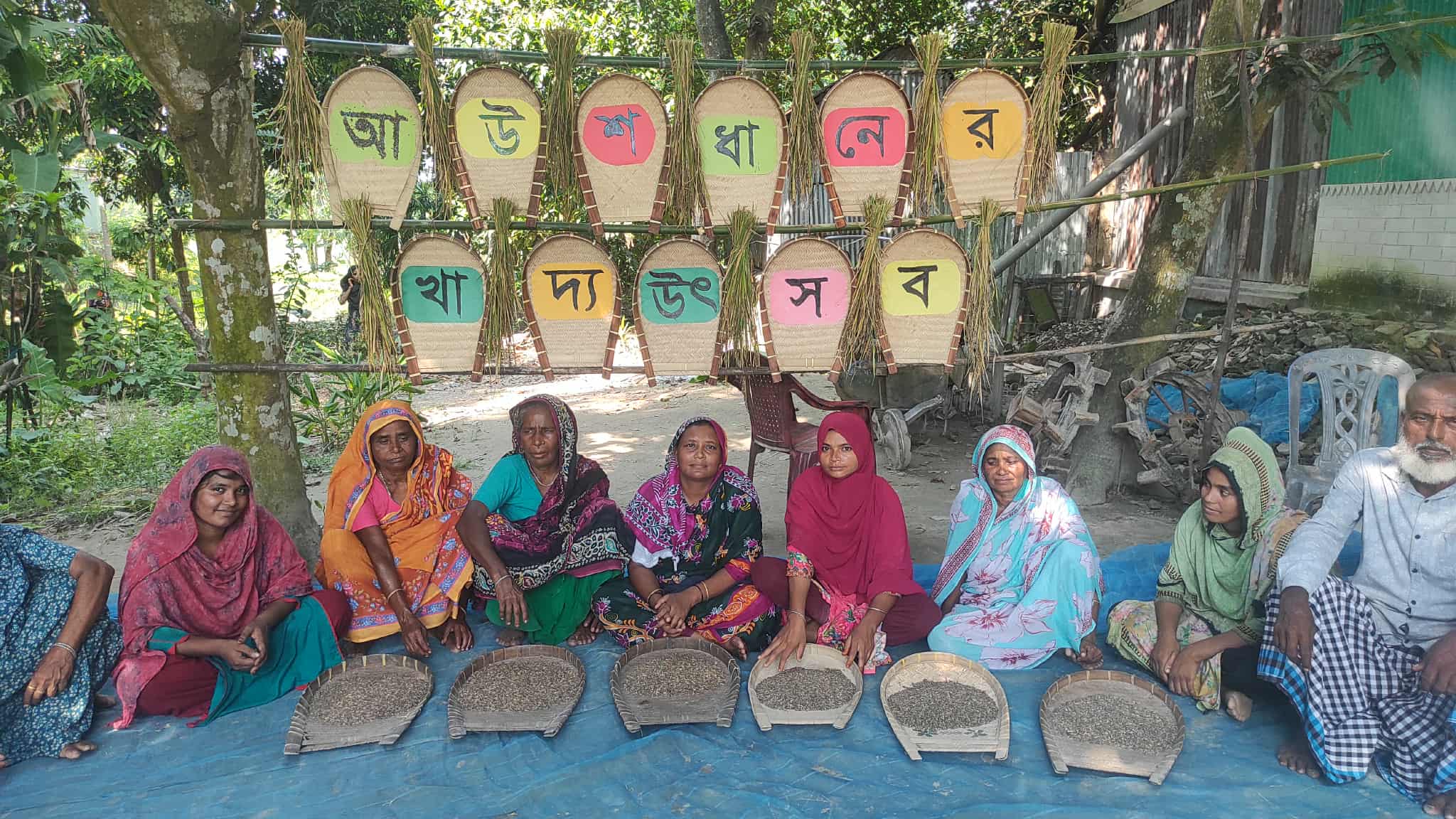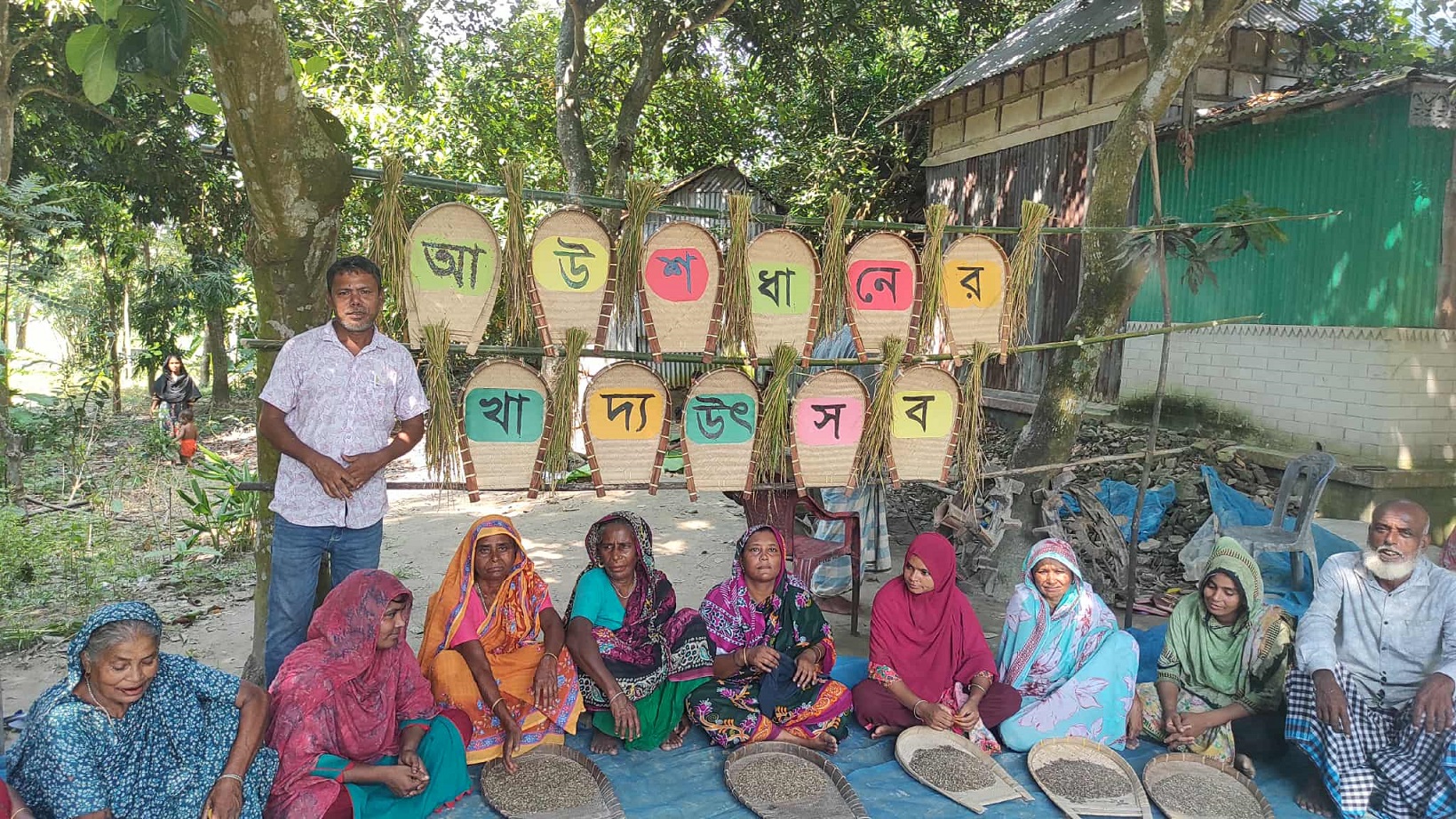By Mukter Hossein from Horirampur, Manikganj,
The “Aus Rice Food Festival-2025” was held in the char (river island) areas of Harirampur to promote disaster-resilient farming, safe food production, and the cultivation of Aus rice among local farmers. The event was organized at the residence of farmer Ershad Munshi in Nata Khola village, hosted by the Nata Khola Agroecology Learning Center.
The festival, supported by BARCIK, was coordinated by the Nata Khola agorecology Learning Center, local farmers, and youth group members. Participants included Union Parishad members, students, teachers, farmers, and representatives from local women’s and farmers’ organizations.

A key part of the festival was a discussion session where farmers shared their experiences with Aus rice cultivation, including seed conservation, crop management techniques, and the variety of traditional foods that can be prepared from the grain.
Local farmers mentioned a significant expansion of Aus rice cultivation this season in chars across the Laxshmiganj and Azimnagar unions, with many expecting a bumper yield. According to the Upazila Agriculture Office, cultivation in Laxshmiganj Union alone has exceeded 1,000 hectares this season.
Farmer Faruq Sikdar from Nata Khola village said, “I cultivated this local variety on 10 bighas of land. Aus rice requires minimal cost, it is about 2,000 Taka per bigha for land preparation and seeds. This yields 8-9 maunds per bigha. Crucially, it needs no chemical pesticides or fertilizers, providing a safe food source for our community and meeting our annual food needs.”

Farmer Aklima Begum, President of the Nata Khola Women’s Development Organization, highlighted the crop’s cultural significance. She said, “Aus rice is more than just a disaster-resilient and safe food. It is part of our rural heritage. We conserve its seeds ourselves, and after the harvest, we celebrate with festivals where we make special, sweet-tasting pithas (rice cakes) from Aush rice for our guests.” She went on saying, “We also make delicious muri, khoi, chira, and payesh from it. We hope this festival will encourage even more farmers in our area to cultivate Aus rice.”
